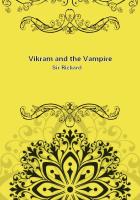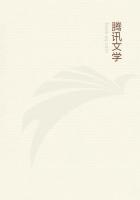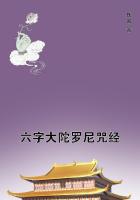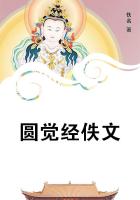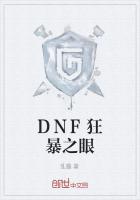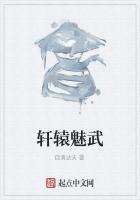This is not so. Anybody connected with the government values the House of Commons in a high degree. One of the leading newspaper proprietors of London himself told me that he has always felt that if he had the House of Commons on his side he had a very valuable ally.
Many of the labour leaders are inclined to regard the House of Commons as of great utility, while the leading women's organizations, now that women are admitted as members, may be said to regard the House as one of themselves.
Looking around to find just where the natural service of the House of Commons comes in, I am inclined to think that it must be in the practice of "asking questions" in the House. Whenever anything goes wrong a member rises and asks a question. He gets up, for example, with a little paper in his hand, and asks the government if ministers are aware that the Khedive of Egypt was seen yesterday wearing a Turkish Tarbosh. Ministers say very humbly that they hadn't known it, and a thrill runs through the whole country. The members can apparently ask any questions they like. In the repeated visits which I made to the gallery of the House of Commons I was unable to find any particular sense or meaning in the questions asked, though no doubt they had an intimate bearing on English politics not clear to an outsider like myself. I heard one member ask the government whether they were aware that herrings were being imported from Hamburg to Harwich. The government said no. Another member rose and asked the government whether they considered Shakespere or Moliere the greater dramatic artist. The government answered that ministers were taking this under their earnest consideration and that a report would be submitted to Parliament.
Another member asked the government if they knew who won the Queen's Plate this season at Toronto. They did,--in fact this member got in wrong, as this is the very thing that the government do know.
Towards the close of the evening a member rose and asked the government if they knew what time it was. The Speaker, however, ruled this question out of order on the ground that it had been answered before.
The Parliament Buildings are so vast that it is not possible to state with certainty what they do, or do not, contain. But it is generally said that somewhere in the building is the House of Lords.
When they meet they are said to come together very quietly shortly before the dinner hour, take a glass of dry sherry and a biscuit (they are all abstemious men), reject whatever bills may be before them at the moment, take another dry sherry and then adjourn for two years.
The public are no longer allowed unrestricted access to the Houses of Parliament; its approaches are now strictly guarded by policemen.
In order to obtain admission it is necessary either to (A) communicate in writing with the Speaker of the House, enclosing certificates of naturalization and proof of identity, or (B) give the policeman five shillings. Method B is the one usually adopted. On great nights, however, when the House of Commons is sitting and is about to do something important, such as ratifying a Home Rule Bill or cheering, or welcoming a new lady member, it is not possible to enter by merely bribing the policeman with five shillings; it takes a pound. The English people complain bitterly of the rich Americans who have in this way corrupted the London public. Before they were corrupted they would do anything for sixpence.
This peculiar vein of corruption by the Americans runs like a thread, I may say, through all the texture of English life. Among those who have been principally exposed to it are the servants,--especially butlers and chauffeurs, hotel porters, bell-boys, railway porters and guards, all taxi-drivers, pew-openers, curates, bishops, and a large part of the peerage.
The terrible ravages that have been made by the Americans on English morality are witnessed on every hand. Whole classes of society are hopelessly damaged. I have it in the evidence of the English themselves and there seems to be no doubt of the fact. Till the Americans came to England the people were an honest, law-abiding race, respecting their superiors and despising those below them.
They had never been corrupted by money and their employers extended to them in this regard their tenderest solicitude. Then the Americans came. Servants ceased to be what they were; butlers were hopelessly damaged; hotel porters became a wreck; taxi-drivers turned out thieves; curates could no longer be trusted to handle money;
peers sold their daughters at a million dollars a piece or three for two. In fact the whole kingdom began to deteriorate till it got where it is now. At present after a rich American has stayed in any English country house, its owners find that they can do nothing with the butler; a wildness has come over the man. There is a restlessness in his demeanour and a strange wistful look in his eye as if seeking for something. In many cases, so I understand, after an American has stayed in a country house the butler goes insane. He is found in his pantry counting over the sixpence given to him by a Duke, and laughing to himself. He has to be taken in charge by the police. With him generally go the chauffeur, whose mind has broken down from driving a rich American twenty miles; and the gardener, who is found tearing up raspberry bushes by the roots to see if there is any money under them; and the local curate whose brain has collapsed or expanded, I forget which, when a rich American gave him fifty dollars for his soup kitchen.
There are, it is true, a few classes that have escaped this contagion, shepherds living in the hills, drovers, sailors, fishermen and such like. I remember the first time I went into the English country-side being struck with the clean, honest look in the people's faces. I
realised exactly where they got it: they had never seen any Americans.

